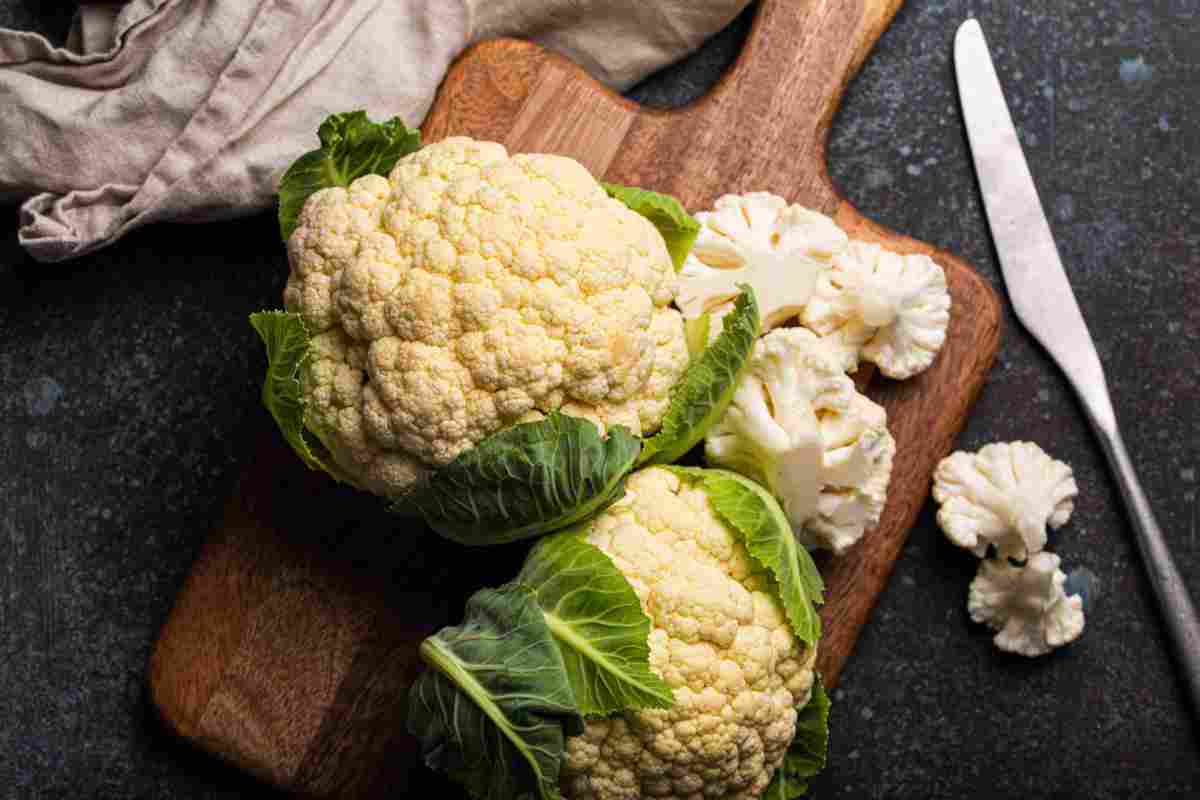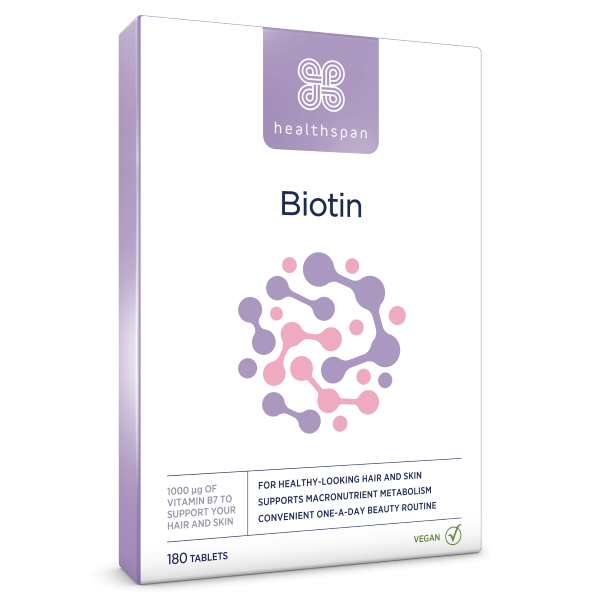Often mentioned in relation to our hair and nails, biotin is becoming increasingly popular. Find out about the benefits of biotin, how you can obtain it through your diet and the role of supplements.
What is biotin?
Biotin is a water-soluble member of the B group of vitamins, sometimes known as vitamin B7. It is involved in several processes in the body, such as the metabolism of fatty acids and production of glucose, and is needed for the growth and repair of skin, hair and nails.
What is biotin good for?
There are authorised health claims that biotin contributes to:
- Normal energy-yielding metabolism
- Normal functioning of the nervous system
- Normal macronutrient metabolism
- Normal psychological function
- The maintenance of normal hair
- The maintenance of normal mucous membranes
- The maintenance of normal skin
Biotin for nails
Biotin supplements can increase nail plate thickness by 25 per cent in women with brittle nails.1
Studies also found that biotin supplements improved nail firmness and hardness after 6 months of treatment.2

Cauliflower is a good source of biotin to include in your diet.
What foods contain biotin?
Biotin is found in meat, liver, oily fish and egg yolks as well as in wholegrains, nuts and legumes such as soybeans and lentils. Vegetarian sources include vegetables such as spinach, cauliflower and mushrooms, as well as yeast extract.
How much biotin do you need per day?
The recommended daily intake for biotin is 50µg.
To maintain healthy skin, hair and nails, however, higher doses of a biotin supplement around 1,000µg can be taken daily. Two out of three people respond, with nails growing significantly thicker.3

Biotin
High-strength biotin for healthy hair and skin
- 1,000µg vitamin B7 biotin
- Supports macronutrient metabolism
- Supports healthy hair and skin for less than 6p a day
Can you take too much biotin?
Biotin is relatively non-toxic as excess is excreted in the urine. No serious biotin side effects have been reported.
Daily intakes of up to 1,000µg daily appear to be safe.
Biotin deficiency
As biotin is widely found in food, and is also made by bacteria in the gut, dietary deficiency is rare.
An estimated one in every 120 people inherits an error of biotin metabolism, however, which is believed to affect their immunity against yeast infections. In such cases, high-dose biotin supplements will help if biotin deficiency is to blame.
Deficiency can also occur in those taking long-term antibiotics, although taking a probiotic supplement containing friendly digestive bacteria will help to overcome this effect.
Biotin deficiency is occasionally seen in people who eat large amounts of raw egg white over a long period. Raw (but not cooked) egg white contains a protein called avidin that binds to biotin in the gut and prevents its absorption.
Symptoms that may be due to biotin deficiency include:
- Dry, flaky skin
- Rash around the nose and mouth
- Brittle hair and nails
- Tiredness
- Loss of appetite
- Nausea
- Patchy hair loss
- Depression
- Muscle pains and wasting






